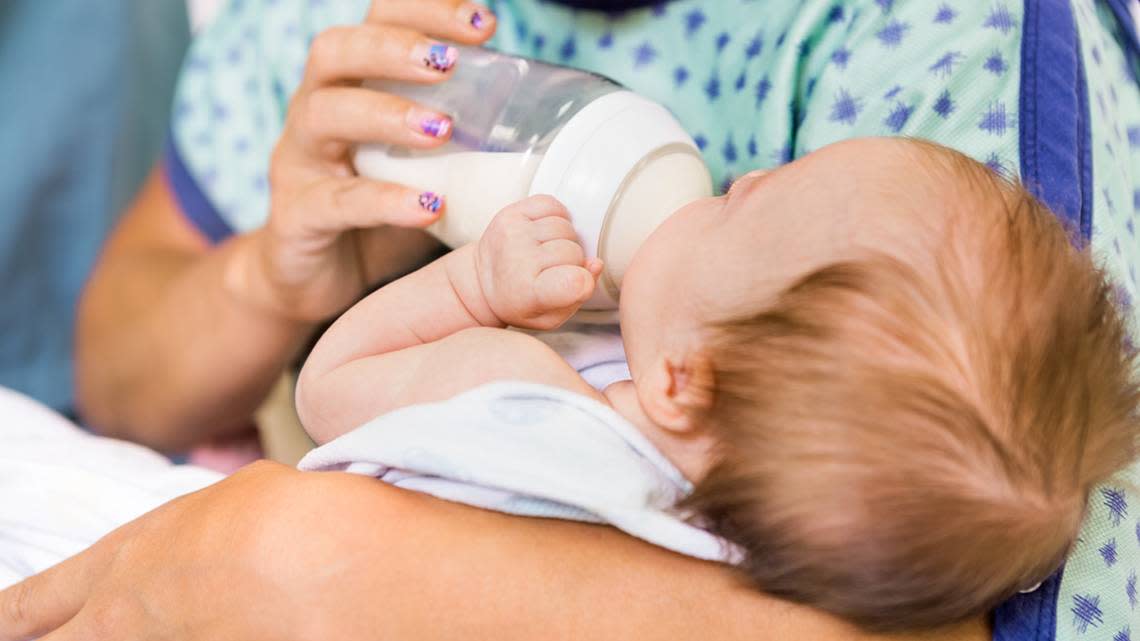The days after giving birth aren’t joyful for women facing postpartum depression | Opinion

When I think of the birth of my daughter, I am filled with sweet memories.
That day was overflowing with joy and wonder for my husband and me. We were overwhelmed with elation. But three years later, as I look back at the days that followed her birth, I remember very different emotions wrapping themselves around me, smothering all of my new mother’s happiness.
Opinion
Within two or three days of Sybil coming home, she struggled to breastfeed and lost weight. As the days went on, I felt down and anxious, and I questioned whether I could be a good mother. As time wore on, and I tried to talk about my emotions, I was asked by friends and family — with good intentions — how I could possibly feel sad? After all, I had a beautiful baby girl.
One month after Sybil’s birth, I broke down at my pediatrician’s office during a baby wellness checkup. I was told this was normal, and that I just had a case of the “baby blues” — a catchall name for any sadness or depression a new mom is feeling. I left that appointment discouraged, but I didn’t question it because I thought there was something wrong with me.
What I didn’t understand at that moment was that I was suffering from postpartum depression. I was one of 800,000 people who each year struggle with depression and anxiety after giving birth. One in five women in California experience a mental health issue during the perinatal period, which includes pregnancy and up to 12 months after giving birth, according to the California Health Care Foundation. The problem affects many women of color, and particularly impacts women who experience pregnancy loss.
Parents silently suffer because they don’t know what they are experiencing is common and treatable. Just like me, they feel embarrassed and ashamed — worrying that if they admit they are struggling when talking to a medical professional, someone from social services will show up on their doorstep and take their baby. Only 25 percent of women with postpartum depression get treatment.
Six months after my daughter’s birth, I recognized I wasn’t getting any better. In fact, I began having suicidal thoughts. I was filled with burning, unexplainable anger, that would boil over after even the smallest incidents. If my husband didn’t refill the water pitcher, I exploded.
I again reached out for help, this time to my health insurance company. But they said I couldn’t get an appointment with a mental health professional in my network for weeks.
What saved me was finding an online support group that was a bridge for me until I could get in to see a therapist. In the group, run by Postpartum Support International, I witnessed — for the first time — other women describing the same emotions and struggles as me. I also saw that recovery was possible.
Four months after I started participating in the support group, I got into therapy and began taking medication. The anger disappeared and the depression lifted.
Once I started feeling better, I talked openly about my postpartum depression. I wanted doctors to know more about it, and spoke to my pediatrician again. She appreciated me sharing my story, saying the insight would help her when she talks to other new mothers.
Women who are depressed after giving birth should know they don’t have to suffer in silence, and that there are proven ways to feel better. Motherhood should be about happiness, not mental pain.
As I enjoy the summer with Sybil and my husband, I will be thinking about new mothers who are struggling. I want them to know there is hope.
Lisette Lopez-Rose lives in Richmond. If you need assistance with postpartum depression or other perinatal mental health disorders, call 1-800-944-4PPD (4773) or Text “Help” to 1-800-944-4773 (English) or 971-203-7773 (Spanish), visit postpartum.net or download the Connect app from Postpartum Support International.

